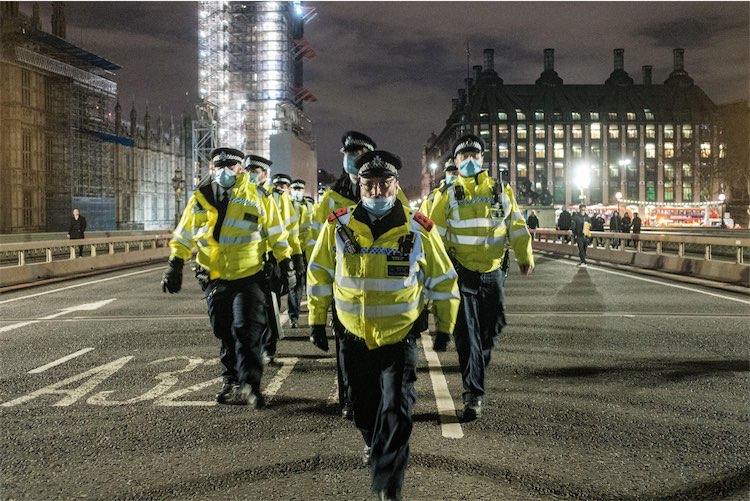Police Urged To Recruit Locally To Tackle Ethnic Injustice In New Race Report
4 min read
Police should have recruits directly from the area they are trying to serve to tackle concerns about the unfair treatment of minorities, the government’s race disparity audit has recommended.
The government's commission has claimed overall that there is no institutional racism in Britain, and on crime and policing specifically they said that it is important to acknowledge “other factors” in addition to racism when looking at the disproportionately between ethnic groups and policing.
The report has made a number of recommendations relating on how to improve policing after it was revealed as one of the most significant areas of concern.
Data has consistently shown the over-representation of ethnic minority groups – both as perpetrators and victims – when it comes to hate crime, violent crime and drug related offences, the report found.
Police workforce diversity figures also continue to remain low and currently no police services were fully ethnically representative of the population they serve.
The report recommends that police offers need better training to “interact with communities” and improve de-escalation training for those carrying out stop and search.
Also among the 24 recommendations was to try and create a police workforce that better represents the communities they serve.
The government is suggesting introducing a local residency requirement for recruitment to each police force area, and guidance on how to do this would be put together by the College of Policing.

The commission found that ethnic minority people, and specifically Black people, are disproportionately victims of violent crime and homicide. For every White victim of homicide aged 16 to 24 in 2018/19, there were 24 Black victims.
Class B drug offences accounted for nearly half of prosecutions for almost all ethnic groups, and the report also recommends developing a pilot that diverts offences of low-level Class B drug possession into public health services. This could remove it out of the criminal justice system entirely.
The report found: "This is the disproportionate criminalisation of young people, often from ethnic minority and deprived backgrounds, through their personal use of cannabis and other ‘soft drugs’.
"The Commission does not endorse the legalisation of Class B drugs...
"But health-oriented Out of Court Disposals (OOCDs) can potentially address substance abuse before it becomes addictive, and may prevent criminal offenders from drifting into more serious criminal behaviours."
On stop and search the report said communities are not given enough information about why is is taking place in a specific area, and that the statistics have remained "unexplained for too long".
It said: “More also needs to be done, by police services and community citizens, to increase local knowledge of the legitimacy of stop and search, and improve transparency and accountability of its use.”
Nearly half (49%) of all stop and searches in England and Wales were made by the Metropolitan Police in London, and this is where the majority (80%) of all stop and searches involving Black people were made.
The report also found that ethnic minority police officers are also experiencing racist abuse from citizens they serve – including from those in their own ethnic minority groups.
Racist assaults against police officers in the Metropolitan Police service almost doubled between the year ending November 2019 and November 2020.
The report said: “The Commission heard evidence from many people, with experience from the perspectives of affected communities and the police, about the change in police attitudes on race over the last 30 to 40 years. It is important to acknowledge other factors, in addition to racism, when considering disproportionality between ethnic groups in policing.
"The police service is imperfect, like all major services and organisations. However the challenges they face when dealing with both victims and perpetrators of crime are complex as the causes are beyond their control.
"Great strides have been made towards becoming a service that can fairly police a multi-ethnic society. It is important to recognise and acknowledge this."
